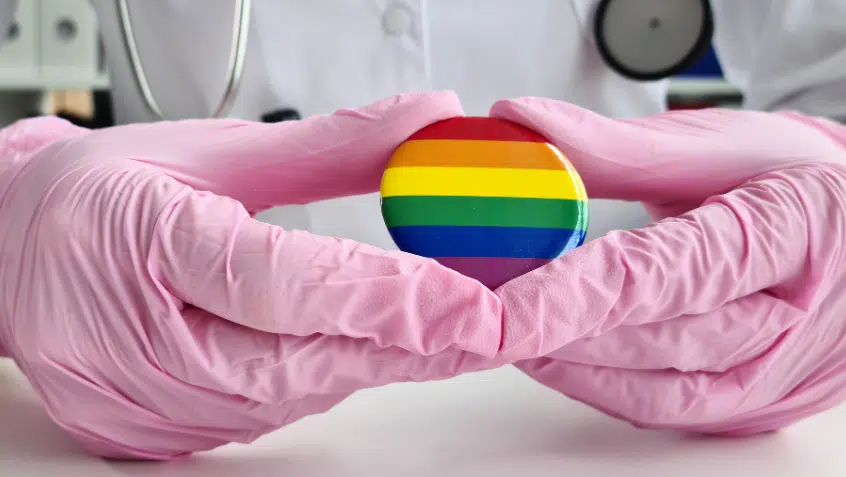Join Us Live for a Discussion on Medicare, Democracy, and the Future of Health Care
Survey Shows LGBT Adults Face Discrimination in Daily Life, Health Settings

As a companion to its report on race and discrimination, KFF released a new report and survey on the experiences of Lesbian, Gay, Bisexual, and Transgender (LGBT) adults. The survey asked both LGBT and non-LGBT adults about many scenarios and situations, including in daily life and health care settings.
A majority of LGBT respondents reported experiences with discrimination in the previous year. LGBT people with incomes below $40,000 per year reported more discrimination in their daily lives than LGBT people above that income. People who identify as White or Hispanic LGBT adults reported higher levels of discrimination than White or Hispanic non-LGBT adults. For Black adults, the reported levels of discrimination were roughly equal for LGBT and non-LGBT respondents. Rates were also higher for women than men, and for younger adults than older adults.
In health care settings, LGBT adults were more likely to report unfair or disrespectful treatment than their non-LGBT peers (33% to 15%, respectively). The numbers were especially high for people with lower income (41%) and those between the ages of 18 and 29 (37%). Over 60% of LGBT respondents reported at least one negative experience with a health care provider over the previous three years, with lower income people being the most likely to cite such experiences, at 70%.
Six in ten LGBT respondents said they had to prepare carefully for appointments, including by dressing well or steeling themselves for insults. And these negative experiences with health care providers led to adverse consequences for many of the respondents, with 39% of LGBT adults saying it made them less likely to seek care, 46% saying it made them less likely to seek mental health care, and 24% reporting that it made their health worse.
More LGBT adults report their mental health or emotional well-being as poor or fair (39%) compared to non-LGBT adults (16%), and younger LGBT adults and those with lower incomes did so at even higher rates. The survey also asked about social networks and support systems, daily stressors, and homelessness, and the results contain important findings illuminating the damaging impacts of discrimination on the LGBT community.
At Medicare Rights, we continue to urge greater efforts on the part of providers, policymakers, and stakeholders to find ways to eliminate discrimination against LGBTQ+ individuals and to mitigate its effects. This is especially vital in health care settings, to avoid creating or exacerbating disparities in treatment and outcomes and to adequately treat and address the health-related consequences of discrimination in society at large. It must also be done comprehensively, to fully address the range of barriers and their causes. All people deserve to be treated respectfully and competently, and to have access to health care that prioritizes their physical and mental well-being.
Show Comments
We welcome thoughtful, respectful discussion on our website. To maintain a safe and constructive environment, comments that include profanity or violent, threatening language will be hidden. We may ban commentors who repeatedly cross these guidelines.
Help Us Protect & Strengthen Medicare
Donate today and make a lasting impact
More than 67 million people rely on Medicare—but many still face barriers to the care they need. With your support, we provide free, unbiased help to people navigating Medicare and work across the country with federal and state advocates to protect Medicare’s future and address the needs of those it serves.
The Latest
Most Read
Add Medicare to Your Inbox
Sign up to receive Medicare news, policy developments, and other useful updates from the Medicare Rights.
View this profile on InstagramMedicare Rights Center (@medicarerights) • Instagram photos and videos









